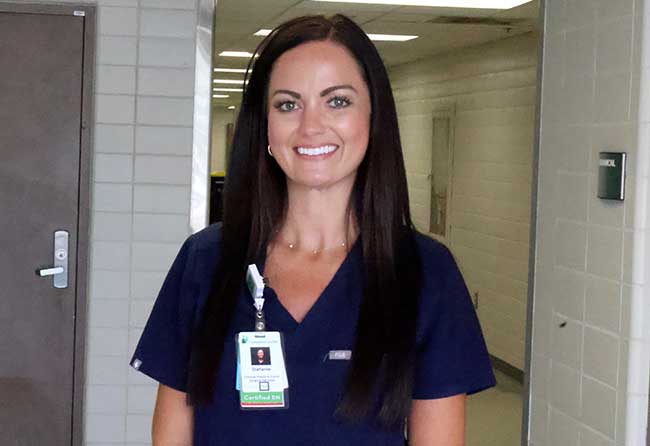
Family Health
Why can’t I wear nail polish during surgery?
Here’s what you should expect if you or a loved one have surgery scheduled at St. Joseph’s/Candler
There’s a time and place for everything. Wearing makeup and your best jewelry to surgery isn’t that time.
The volume of outpatient surgery procedures continues to trend up thanks to improvements in technology. Laparoscopic, robotic and other minimally-invasive surgical techniques mean quicker recovery times for patients.
Outpatient surgery, or day surgery, is a procedure performed that does not require an overnight hospital stay. Examples that we perform include hernia repairs, gallbladder removal, ear and sinus procedures, orthopedic surgeries and much more. Patients of outpatient surgery typically can go home within 23-hours of their procedure.
St. Joseph’s/Candler performs outpatient surgery at four locations: St. Joseph’s Hospital, Candler Hospital, the SJ/C Pooler Campus and the Surgical Specialty Center, which is across the street from St. Joseph’s Hospital.
During fiscal year 2024, there were more than 22,000 outpatient surgeries performed between the four locations. That’s nearly 8,000 more than were performed just eight years ago.
Patient safety is a top priority when you or a loved one come in for outpatient surgery or need inpatient surgery. To ensure the safety of everyone, certain guidelines are in place to protect our patients.
“These guidelines are important for patient safety, first and foremost. They help prepare the patient and minimize potential risks,” says Stefanie Reed, clinical practice coordinator for St. Joseph’s/Candler Surgical Services. “Following these guidelines help for a seamless procedure on the day of surgery and are key for a quicker and safer recovery.”

Here are a few things you should expect if you need surgery:
- All patients will get a call the day before their surgery to let them know what time their procedure is and when they should arrive.
- You will also be instructed on when you should stop eating and drinking as those times vary patient to patient depending on the time of your procedure, the type of procedure and what kind of anesthesia you’re receiving, Reed says.
- Don’t wear anything tight fitting. You want your clothes to be comfortable, as well as your shoes.
- No makeup should be worn. Also please avoid perfumes or sprays, hairspray and any body lotion. We want you as clean as possible to avoid any chance for potential infection.
- Do not wear any jewelry or bring any valuables with you. Also, please avoid any hair clips or bands.
- Remove any finger nail polish or artificial nails. While it surprises some, unpolished nails are important because during anesthesia your oxygen is monitored by your nail beds. Polished nail beds could make it harder to read accurate oxygen levels, Reed says.
- If you take daily medications, you will be instructed during your pre-screening appointment (either in person or via phone depending on your acuity level and type of surgery) on what to take and not take regarding any daily medications you are prescribed. Be sure to have a full list of all medications you take before your pre-screening appointment.
- In most cases, we ask that you only bring two visitors with you – that’s mostly due to spacing and the volume of surgeries we are performing. A nurse will stay in communication with your main point of contact throughout your surgery. If your surgery requires general anesthesia or any drug altering medication, then you will need a driver. Reed also recommends you have a responsible adult with you for at least 24 hours after you get home from your procedure.
- Bring some form of entertainment and be prepared for any length of stay. We strive to keep your wait as short as possible but your surgeon may get caught up in a previous appointment or procedure.
- Finally, be prepared to answer a lot of questions – over and over and over and over again. “Be prepared to get asked a lot of questions like your name, your date of birth, what you are having done, which side, and you’ll probably be asked four or five times,” Reed says. “This is to make sure everybody’s on the same page, and we’re keeping the patient safe.”
Outpatient surgeries are typically performed Monday through Friday. Visit our website to learn more.
Have a child in need of surgery at St. Joseph's/Candler? Check out this article.
